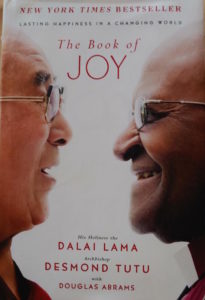[I’ll move on to humor, the third pillar, in a few days. Today calls for perspective and humility. With heavily armed people patrolling the streets, peaceful protesters willing to risk gathering in large groups in this time of Covid-19, and opportunists taking advantage of it all to rob and destroy, it’s time for a wider, Biblical perspective. ]
But one of them, Caiaphas, who was high priest that year, said to them, “You know nothing at all! You do not understand that it is better for you to have one man die for the people than to have the whole nation destroyed.” John 11:49-53, NRSV
Taking a wider view, a longer look, can be a very good thing. It helps us put the troubles of today into a larger context, and it can move us from knee-jerk reacting to measured response. But that’s only if we are willing to see our own shortcomings in the process. Otherwise, taking a wider view is really just seeking wider justification for whatever it is we want to do.
Caiaphas is a good example. He spoke the truth: The love Jesus gave to the world, and the death he received in return, had powerful, holy consequences. But Caiaphas wasn’t really looking at that: he was a practical man, doing his best to maintain some freedom of worship during Roman occupation. Killing Jesus would keep the peace, and keep his world in its current state. The point wasn’t spiritual growth or sacrificial love for the world. He was willing to kill to maintain what he had.
I’m not comparing anyone today to Jesus. But in the willingness of this country to deny or try to explain away the toxic and deadly presence of racism in order to keep things as they are, I see the face of Caiaphas. The question isn’t whether the death of someone can bring about a better world – or it shouldn’t be. The question is whether it’s at someone else’s expense, or my own willing sacrifice. The means do not justify the ends.
There are so many words on this in our holy scriptures, and so many people who have done their best to point out this truth. They even have a special name: prophets. May we listen to them with open hearts and minds – and be willing to speak and act accordingly.
Disturbed, The Sound of Silence, Immortalized, 2015, Reprise Records (original version, Simon and Garfunkel)






